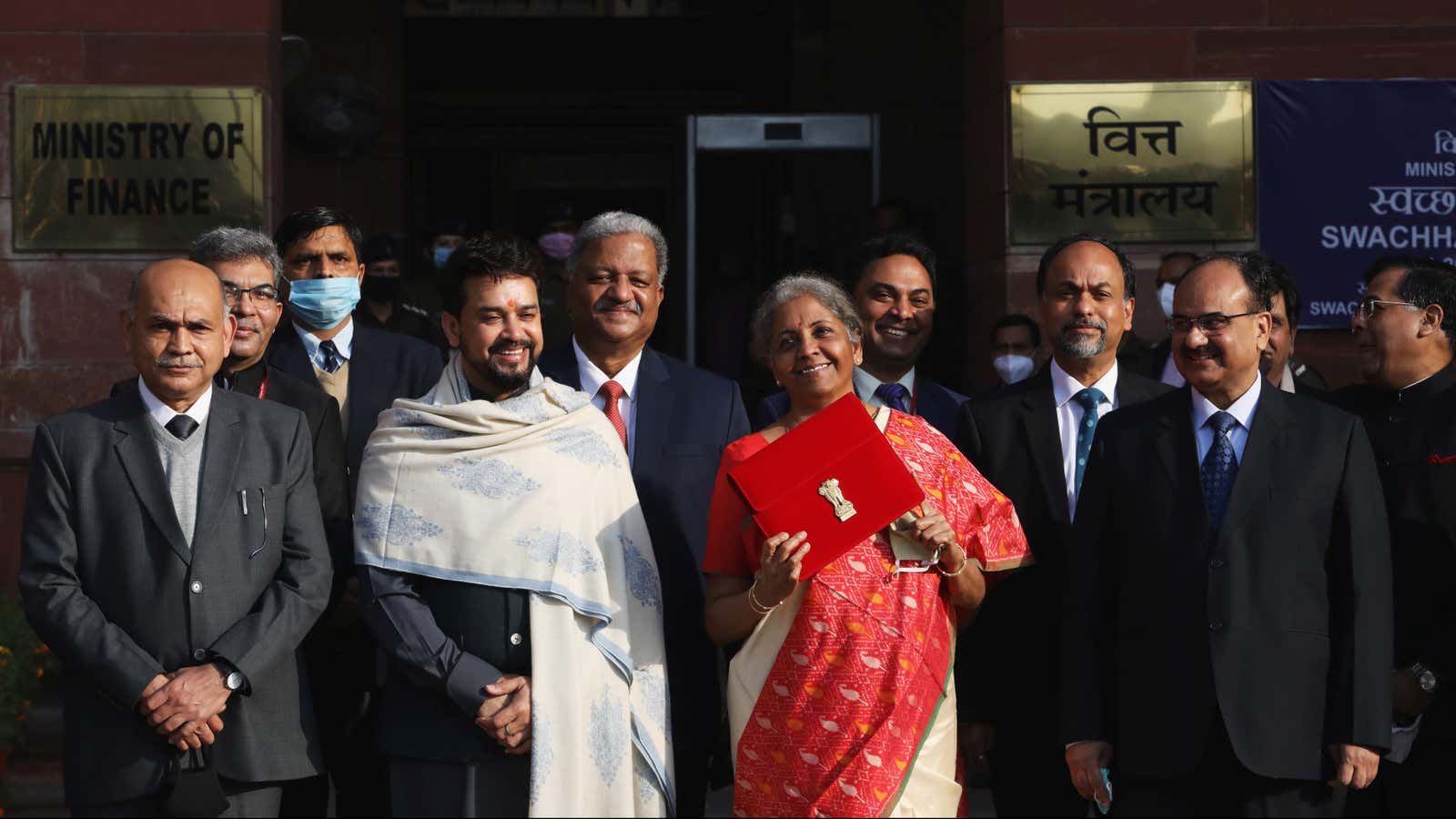In an example of how Covid-19 has changed governance, finance minister Nirmala Sitharaman addressed healthcare as the first item on her union budget checklist.
During the speech today (Feb. 1), Sitharaman announced fund allocations and new schemes for healthcare as the first of the six pillars this budget rested on. “Taking a holistic approach to health, we focus on strengthening three areas: preventive, curative, and wellbeing,” she said in parliament.
To this end, the government has announced a total outlay of Rs2.24 lakh crore ($30.67 billion) for the 2021-22 fiscal year. At the outset, this is a 137% increase over the revised healthcare estimates of budget 2020-21. But these figures need to be examined further for a clearer picture.
For instance, Rs2.24 lakh crore includes budget allocations for schemes related to sanitation and waste management, access to clean drinking water, and India’s nutrition programmes for mothers and children.
In essence, spending dedicated to healthcare, which is also currently an allocation and not the actual amount spent, is Rs74,602 crore, roughly Rs7,800 crore below the revised estimates for 2020-21.
Eye on Covid-19 and beyond
But added to these healthcare allocations, the finance minister has made a special Covid-19 provision in the budget of Rs35,000 crore just for vaccines. This is well within the estimates from COVAX, that said India would need between Rs10,248 crore and Rs13,176 crore for the vaccine initiative for 300 million people.
Sitharaman also declared that she is “committed to provide further funds if required.” This will be particularly tricky given India’s burgeoning fiscal deficit, which stands at 9.5% of the gross domestic product for 2020-21.
A chunk of this spending is also allocated towards a new scheme called the Pradhan Mantri Atma Nirbhar Swasth Bharat Yojana, which, according to Sitharaman, “will develop capacities of primary, secondary, and tertiary care health systems, strengthen existing national institutions, and create new institutions, to cater to detection and cure of new and emerging diseases.”
The funds for this scheme will be to the tune of Rs64,180 crore, which will be over and above the National Health mission, the primary programme for the disbursal of healthcare schemes in India. But the funds for this new scheme will only be fully spent and implemented over the next six years.
Similarly, the Jal Jeevan Mission, a water access and sanitation programme for urban centres, has received Rs2.87 lakh crore, but over a period of five years.
